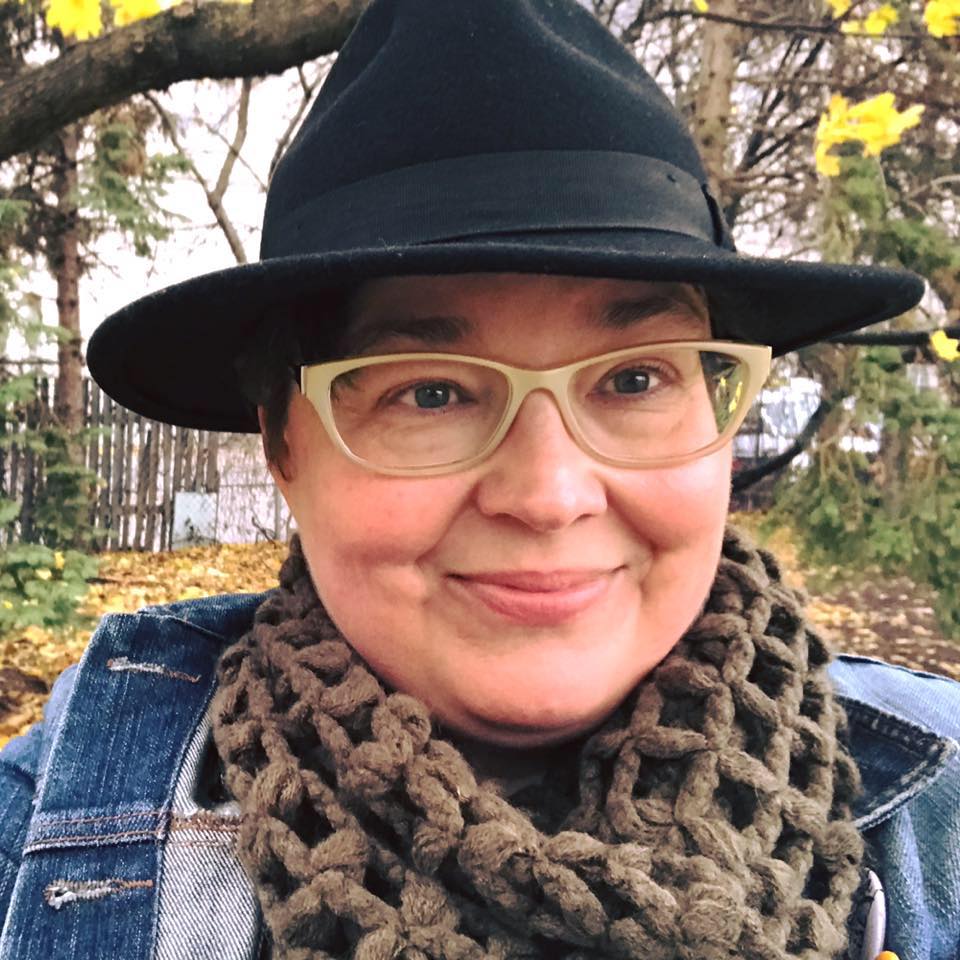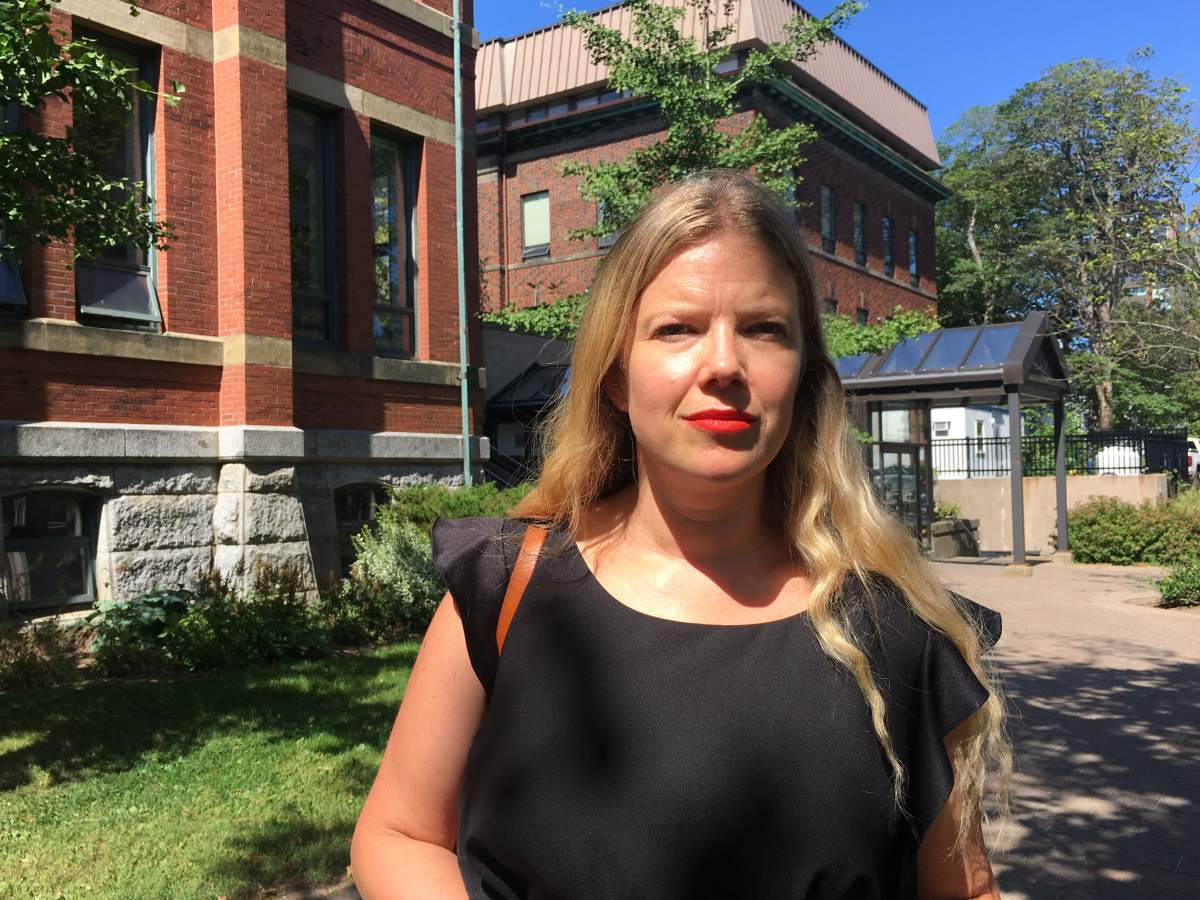The COVID-19 pandemic has had an impact on almost all facets of health care, and abortion access isn’t an exception.

For Shannon Hardy, founder of Abortion Support Services Atlantic, COVID-19 hasn’t necessarily created new problems, but it’s highlighted issues that were there long before the pandemic.
“Geography, always,” she said of the biggest challenges facing someone seeking abortion.
“People are coming into Halifax, so if you don’t have a car or you don’t have a way in, that’s always the biggest challenge.”
Abortion Support Services Atlantic is a volunteer-run, pro-choice group that helps people access abortion services in the Atlantic provinces.
Four Nova Scotia hospitals currently perform vacuum aspiration abortions. They’re located in Halifax, Bridgewater, Kentville and Truro, but most are done in Halifax.

Although current COVID-19 restrictions prohibit Nova Scotians travelling outside of someone’s community for non-essential reasons, people are still allowed to travel for health care, which includes abortions.
But what if someone needs to travel even farther?
Nova Scotia’s current gestational limit for aspiration abortions is 16 weeks, so if someone misses that cut-off, they need to leave the province to get an abortion.

During the pandemic, Hardy said her organization assisted a patient who missed the gestational cut-off date and had to travel to Vancouver in the middle of a pandemic to get the procedure done.
The woman had to “stay in a hotel, figure out how to navigate a city she’d never been to,” and when she returned to Nova Scotia she had to miss two weeks of work because she was in self-isolation.
Abortion Support Services Atlantic had to fundraise to help pay for the costs incurred. Hardy said this responsibility shouldn’t have to fall on them.
“That’s the mind-boggling part, that a group of volunteers is doing all of this,” she said. “But if we didn’t, then people wouldn’t have access to health care.”
While there are geographical issues when it comes to abortion access in Nova Scotia — mainly affecting Cape Breton, which doesn’t have aspiration abortion services on the island — Hardy noted it’s a problem across Atlantic Canada, especially in Newfoundland and Labrador, which only has a clinic in St. John’s.

Get weekly health news
That means people in other areas of Newfoundland may need to travel for hours to get an abortion, and those living in Labrador would need to fly to St. John’s on their own dime.
While health care is supposed to be free in Canada, people getting abortions often have to pay in some way, such as paying for travel or having to take time off work, said Hardy.
Making abortion available at more locations could help alleviate some of these issues, she said, especially those related to travel.
“Abortion is health care, and yet we don’t offer it everywhere we could,” said Hardy. “There’s no reason people need to be leaving their home communities, especially during a pandemic.”
Hardy would like to see stricter punishment for provinces that fail to provide adequate access to abortion.
She pointed to New Brunswick, where the federal government recently reduced the Canada Health Transfer by approximately $140,000 due to the province’s refusal to fund out-of-hospital abortions, but said that amount was “a drop in the bucket.”
“It was like giving a $25 fine to a millionaire,” she said. “That would be one thing: to actually fine provinces who don’t offer health care in an amount that actually makes an impact.”

‘Excellent uptake’ for medication abortion
While COVID-19 has made travelling for abortions more of an issue, the pandemic has actually helped improve abortion access in some ways, according to Martha Paynter, a PhD candidate at Dalhousie’s school of nursing and a registered nurse working in abortion care.
Paynter said situations like the one involving the patient that flew to Vancouver are very rare, and getting an abortion is a straightforward experience for most people in Nova Scotia.
She said a toll-free line for people seeking an abortion in Nova Scotia — the only one of its kind in the country — continues to be answered every day and wait times for abortions are generally quite low.
“We have not had a day of interruption in access to this essential service,” she said, adding that demand for abortions has actually gone down during the pandemic.
“People are depressed, and they are having less sex.”
- Tumbler Ridge B.C. mass shooting: What we know about the victims
- Trump slams Canada as U.S. House passes symbolic vote to end tariffs
- ‘We now have to figure out how to live life without her’: Mother of Tumbler Ridge shooting victim speaks
- Mental health support after Tumbler Ridge shooting ‘essential,’ experts say
The toll-free number can be reached at 1-833-352-0719.
Paynter said COVID-19 has also made telemedicine more common, and it’s easier for patients across the country to access Mifegymiso, a pill that can be taken to terminate a pregnancy.
“So, rather than having to make an appointment and go see someone to get this prescription, you could have that conversation over the phone,” she said.
About a third of abortions in Nova Scotia are now done through Mifegymiso.
“That’s excellent uptake, since the medication has only been on the market since 2017,” said Paynter.
She said for a province of its size, Nova Scotia provides “excellent” care for patients and noted that most places in Nova Scotia, with the exception of Cape Breton, would only be about 90 minutes away from a place that can provide aspiration abortions.
“Really, the thing that is most concerning (about having to travel) is their expenses are quite high, and that’s really unfair and inappropriate,” she said.
Reducing the stigma
Paynter also noted that if someone is living in an abusive household, the pandemic means that they are forced to spend more time with their abuser.
“Abuse is an enormous reason for abortion-seeking … and we have tons of evidence that abuse against women, people with a uterus, has skyrocketed during this pandemic,” she said.
When it comes to reproductive health, Paynter said the biggest priority should be having fully-funded contraception. COVID-19 has resulted in many people losing work, and with that, those people lost the pharmacare benefits tied to their employment.
While abortion will always be needed, having better access to contraception gives people more options to avoid an unwanted pregnancy, she said.
“You can have an abortion every single day and it will be covered publicly, but your contraception will not,” she said. “And this is extremely inefficient, it’s very harmful to patients, and it is a completely discriminatory policy that discriminates against people with a uterus.”

Paynter, who also teaches a course about abortion care at Dalhousie’s school of nursing, said if there’s one thing she wants people to take away, it’s that abortion is normal, abortion is common, and it’s time to reduce the stigma surrounding it.
“It’s one of the most common reproductive health-care services in Canada. One in three people with a uterus in Canada will have an abortion in their lifetimes,” she said.
In her first year of teaching the course, both the fall and winter semesters were completely full, with a waitlist of about 100 people.
“It really goes to show that people want to learn about this,” she said.
“Training people, and creating that baseline of comfort and competence, is super important.”










Comments
Want to discuss? Please read our Commenting Policy first.